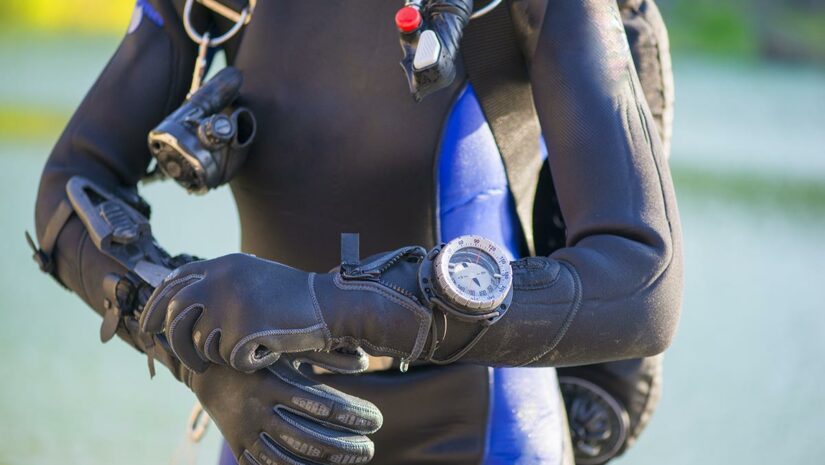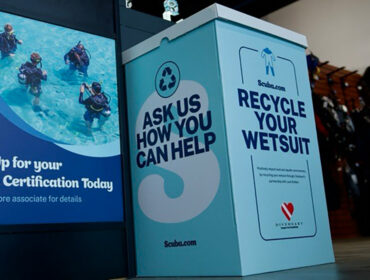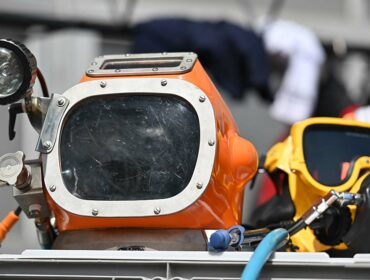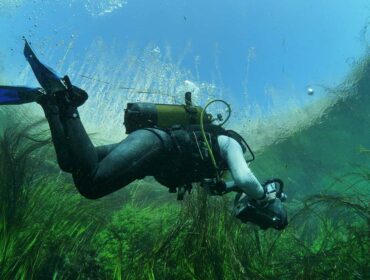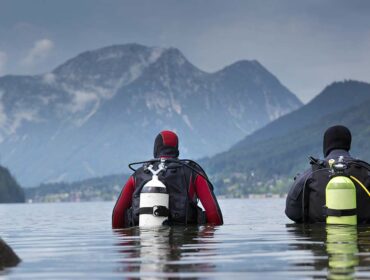Taking proper care of your diving gear is one of the biggest responsibilities that you have as a diver. Good post-dive gear helps to extend the longevity of your expensive equipment and minimizes the risk of health issues and gear-related issues the next time you dive. Remember, your dive gear is your lifeline underwater. Keeping it in pristine working condition should be a top priority of every diver. That’s why you should learn how to care for scuba dive equipment.
While taking proper care of your dive gear is an important responsibility that you should take seriously, it doesn’t need to be an overwhelming or stressful experience. There are a few general guidelines that apply to all post-dive gear maintenance including rinsing your gear thoroughly with fresh water, allowing everything to dry before storing it, and not leaving your gear in direct sunlight for long periods of time.
For more specifics, here’s an overview on how to treat the main pieces of dive gear after you’ve finished your dive.
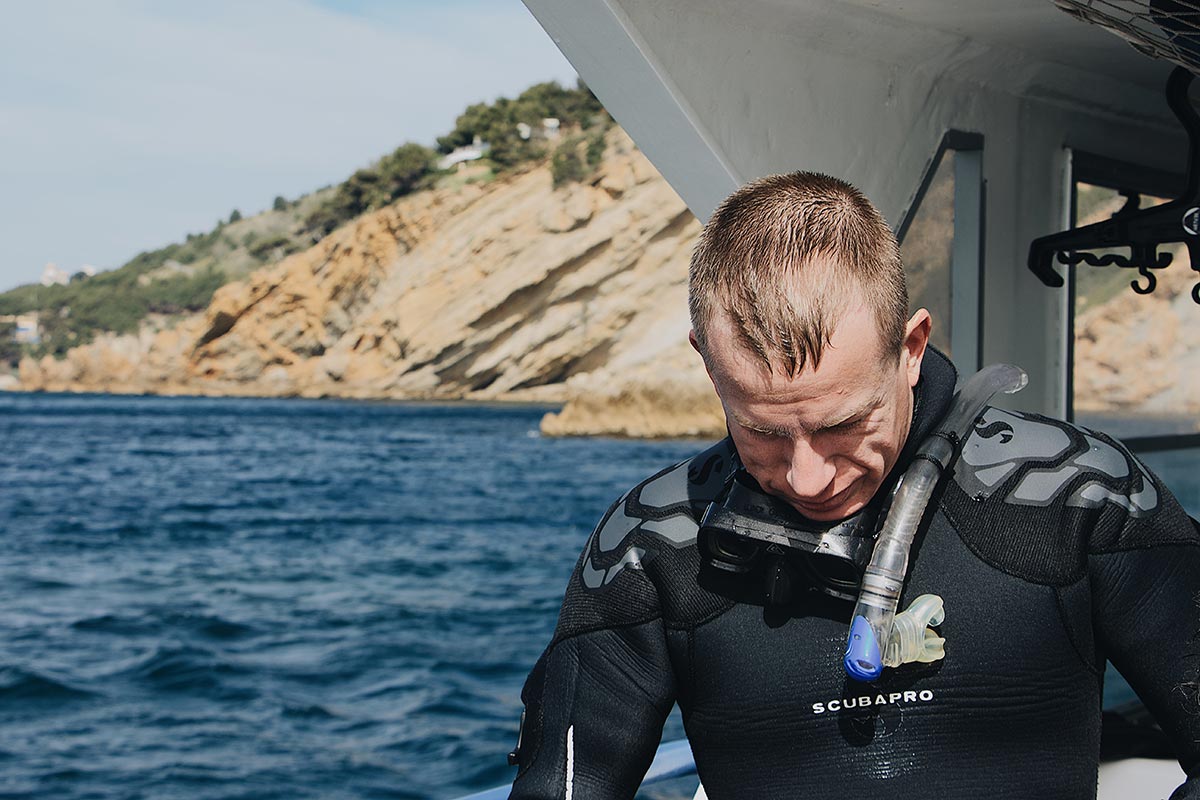
How to Care for Scuba Dive Equipment: Scuba Dive Gear Maintenance
BCD
Like all your gear, you should rinse your BCD thoroughly post dive. But, it’s important not to forget about the inside of the BCD after rinsing the exterior. During a dive, salt water gets into the BCD through the dump valves and low-pressure inflator, so it’s important to drain this out after a dive.
To do this, you need to flush fresh water into the BCD through the low-pressure inflator. Once you have some fresh water in your BCD, you want to orally inflate it and then shake the BCD to allow the water to reach every part of the jacket. Once you’ve sufficiently rinsed your BCD, you can release the water through the dump valves. When you’re ready to store your BCD, it’s best to partially inflate it and hang it in a cool, dry place.
Regulator
Your regulator also requires a fresh water rinse after a dive. When doing this, make sure to securely fasten your regulator’s dust cap and ensure the dust cap itself is dry. You don’t want to allow any water to enter the regulator’s first stage as it can damage the internal components. You can rinse your regulator under a tap or let it soak in fresh water after a dive. Once you’ve finished cleaning your regulator, hang it up and allow it to dry completely before packing it.
Mask, Fins, and Snorkel
Taking care of your masks, fins, and snorkel is fairly easy. Like everything else, they must be rinsed in fresh water and completely dried before being stored. It is a good idea to store your mask in a hard case to prevent the lenses from scratches. When storing your finds, it’s important not to balance them on their tips as this can damage the blade and reduce the efficiency of your fins. Instead, store them flat or hang them up by the strap.
Wetsuit, Booties, and Gloves
These items should be washed inside and out using a neoprene-specific soap or disinfectant. Neoprene items should be hung up to dry after washing. If you pack a wetsuit away without letting it dry completely, it could develop mildew or other bacteria. Make sure when hanging your wetsuit you use hangers specifically designed for wetsuits. Using a wire hanger and crease and damage your suit. Generally, the wider the hanger the better.
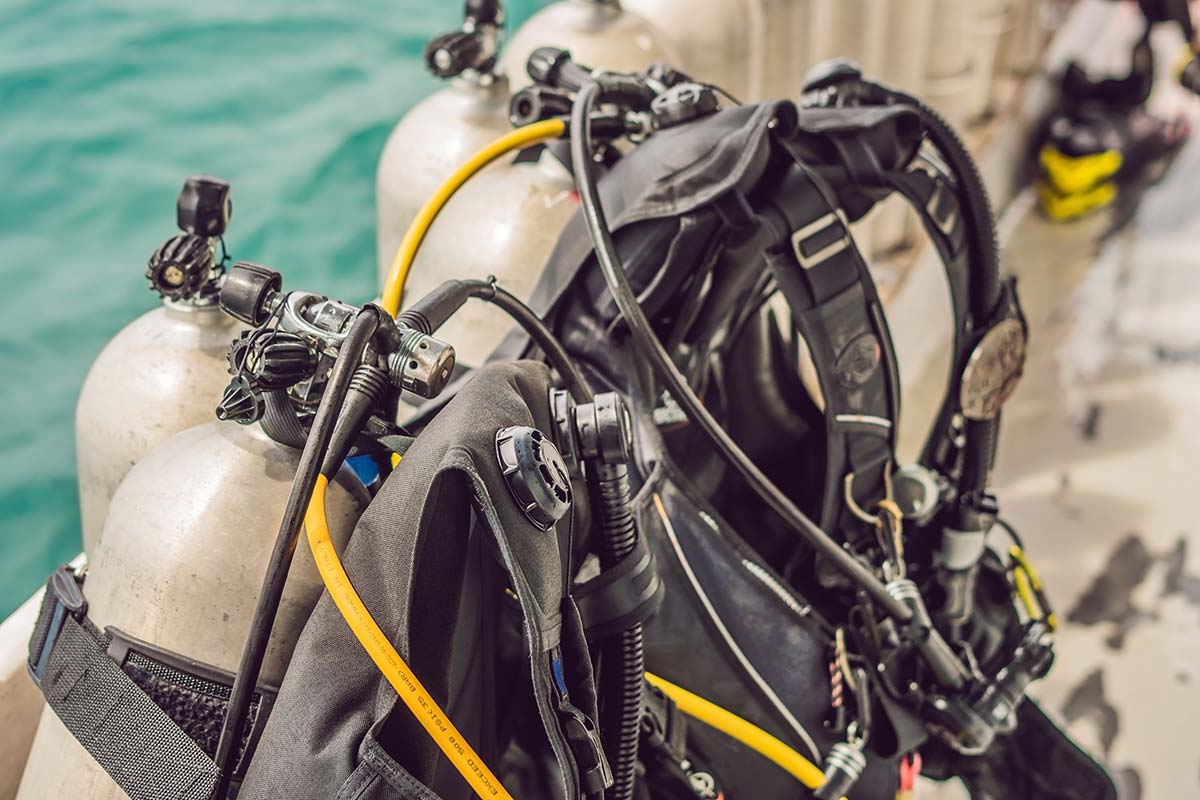
Cylinder
Not all divers have their own cylinders, but if you do, it’s important not to overlook it in your post-dive cleaning. Also rinse cylinders in freshwater to avoid salt buildup and corrosion. When storing your cylinder, it should be lying down horizontally to prevent it from falling. It’s also important not to store your cylinder completely empty or completely full. Without some air, contaminants can enter the cylinder and with too much air they can eventually crack over time.
Accessories
Individual accessories like cameras, flashlights, knives, and dive watches all have different cleaning requirements. Generally speaking though, all these accessories should be thoroughly rinsed after your dive and allowed to completely dry before storing.
The Importance of Cleaning Your Gear
Hopefully this post has emphasized the importance of properly maintaining your dive gear and provided some direction on how to begin a post-dive maintenance routine. It’s also important to mention that having a diligent maintenance routine still does not exempt you from checking your gear regularly. It’s still important to test your gear before each dive to make sure it’s in full working order. Regularly cleaning and checking up on your gear will ensure that it continues to work properly and keep you safe underwater.
Written by: Emily De Sousa
Emily is a fisheries scientist and sustainable seafood educator based in Canada. She is the founder of Seaside with Emily, a platform for sustainable seafood guidance and seafood travel inspiration. Follow on Instagram, Twitter, TikTok.

